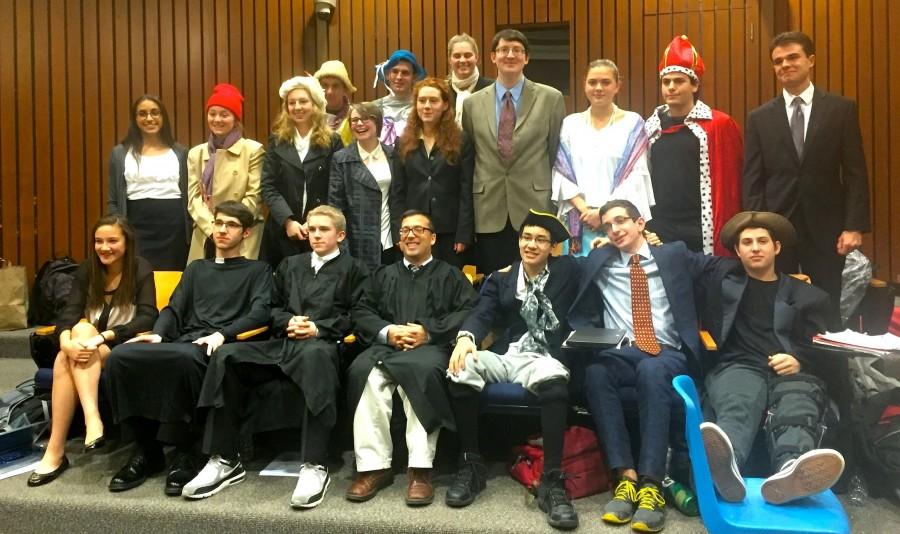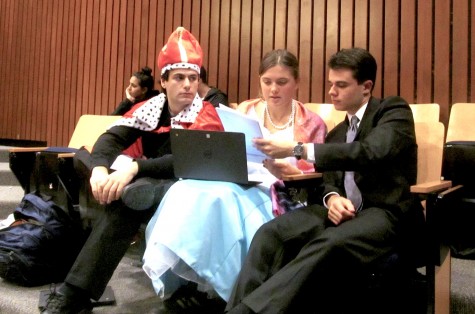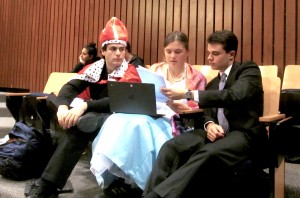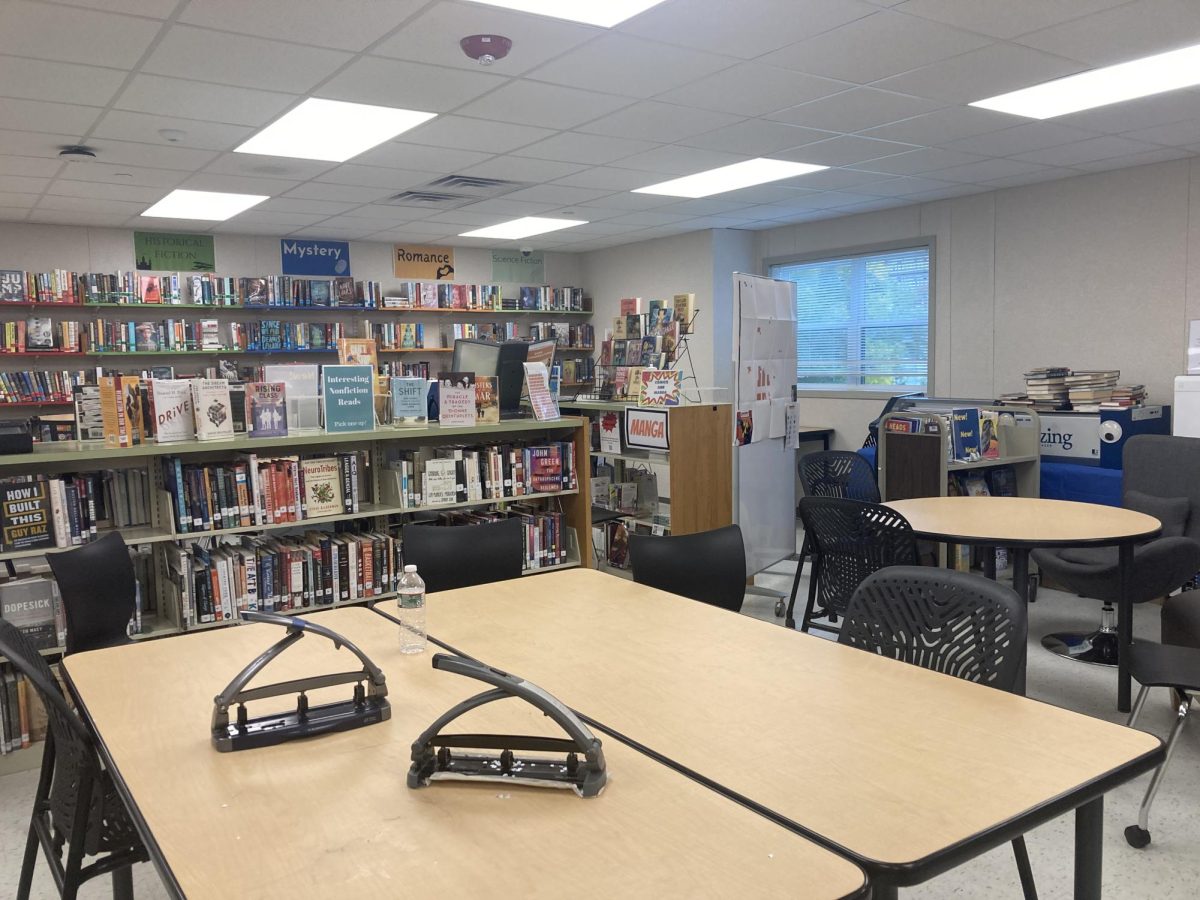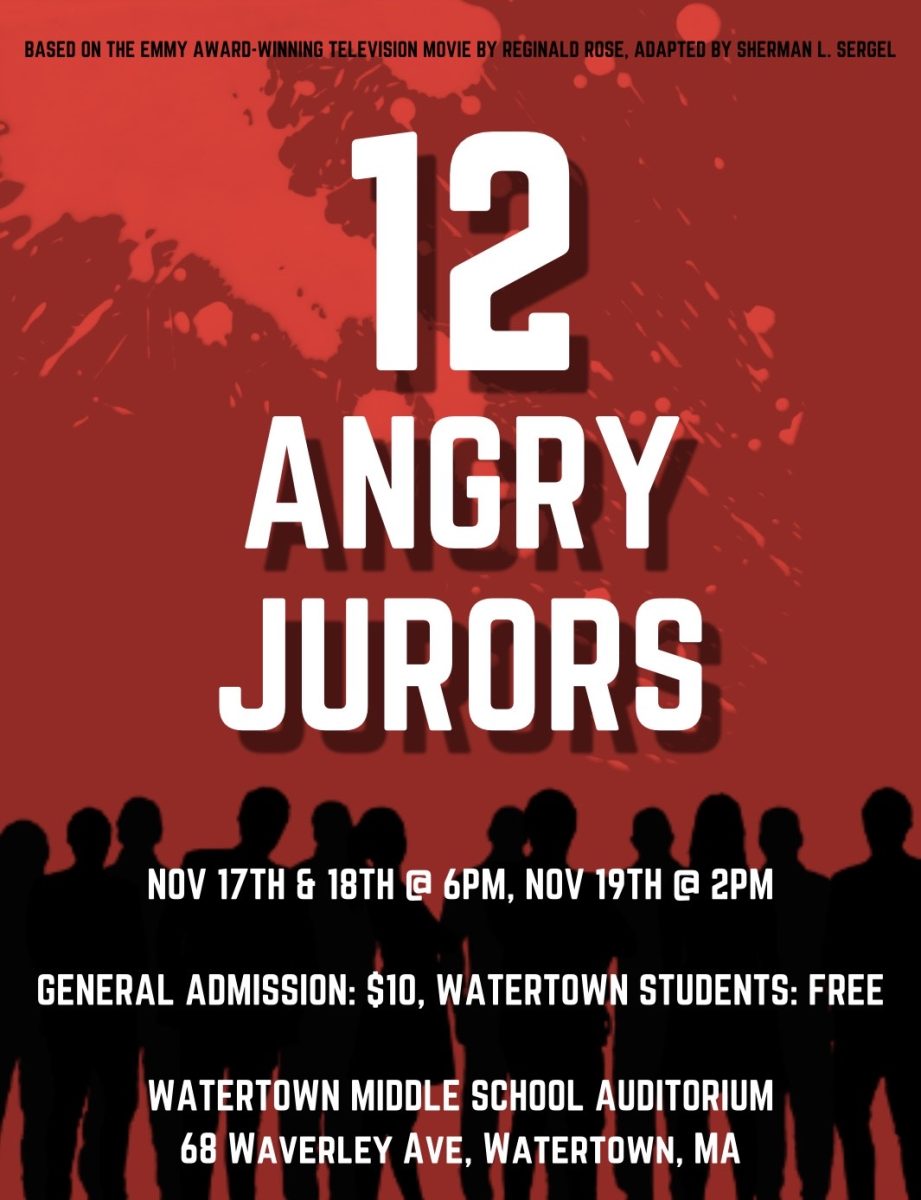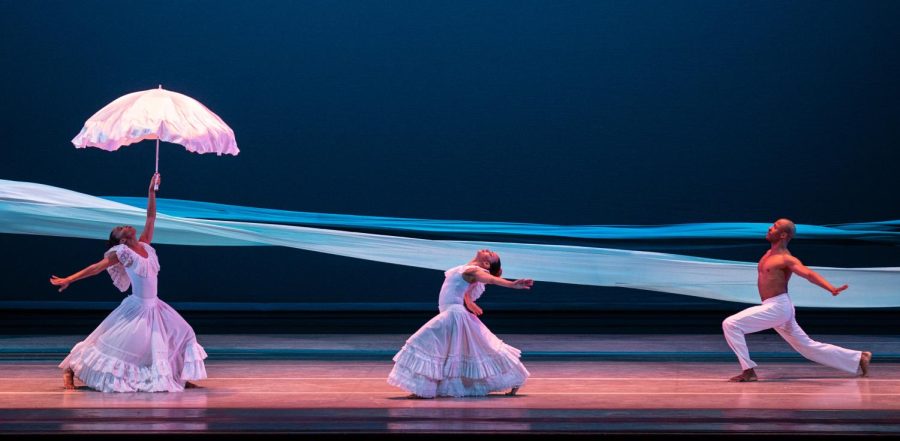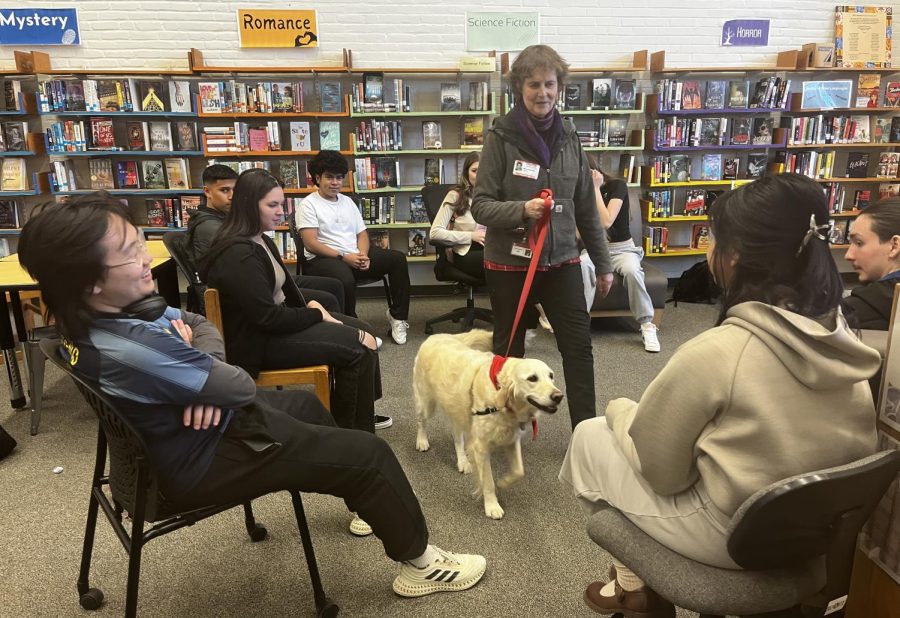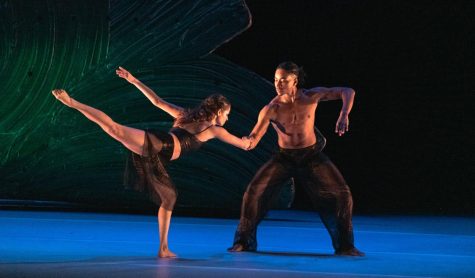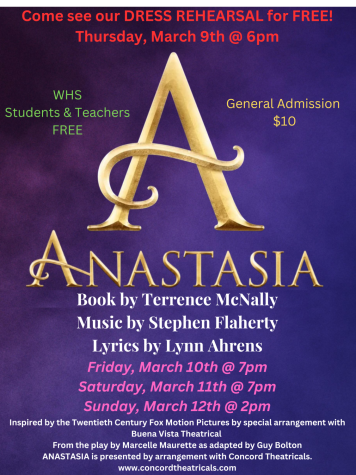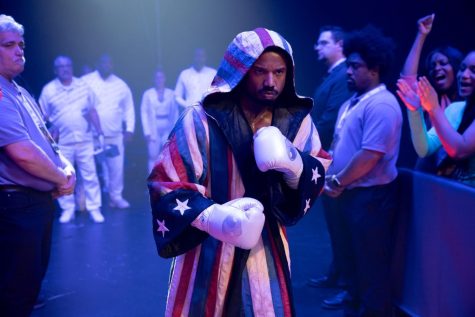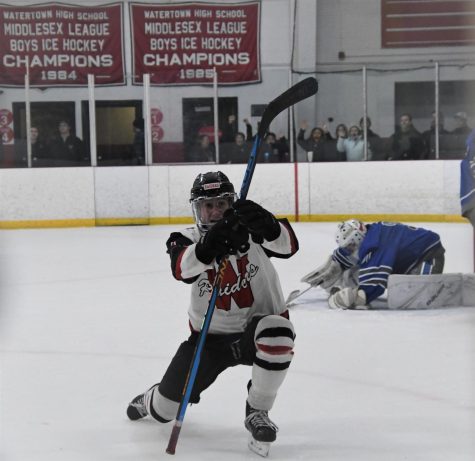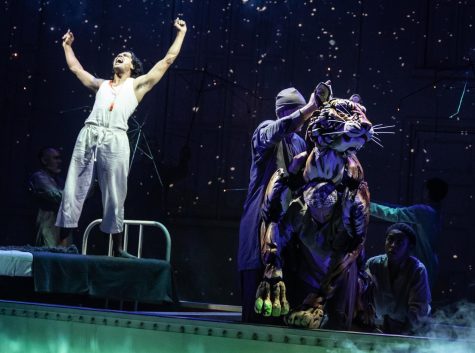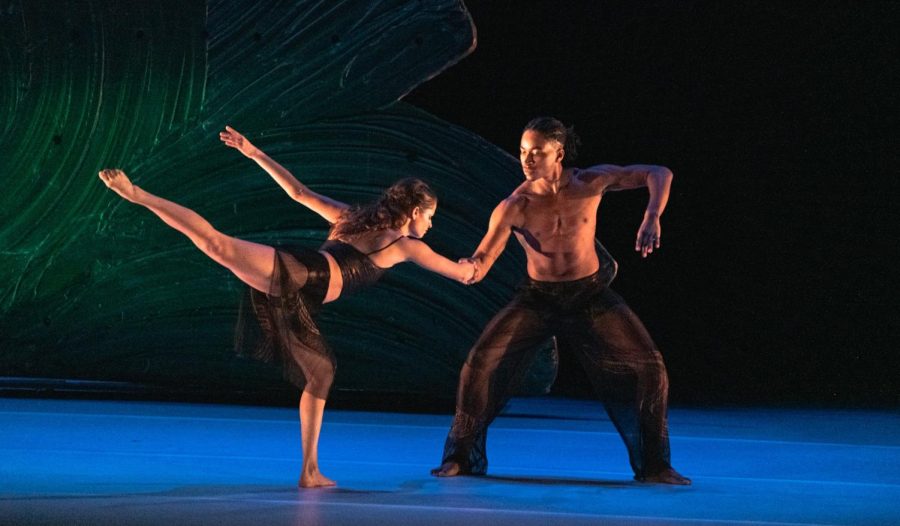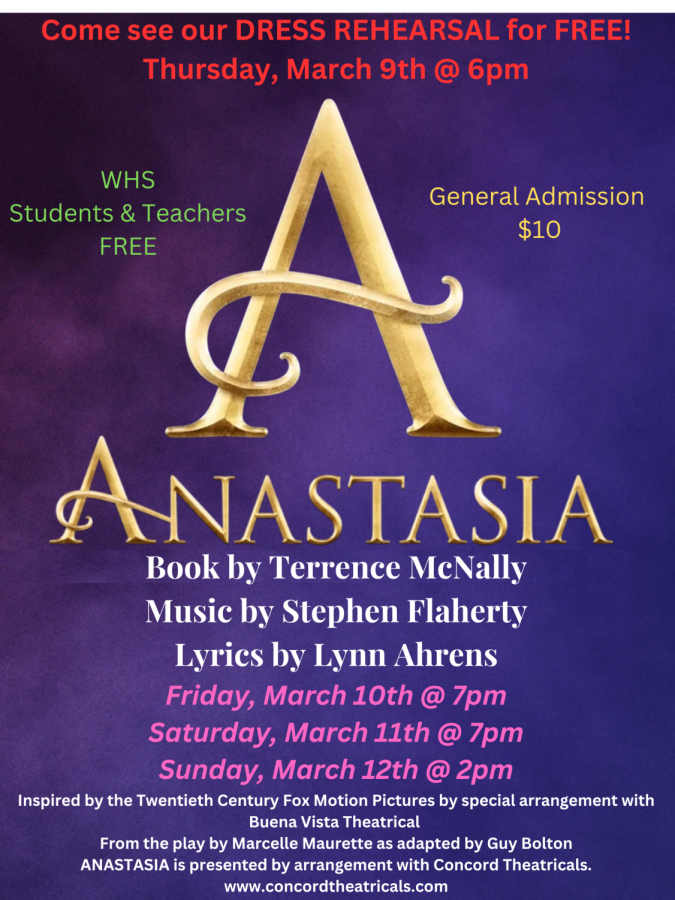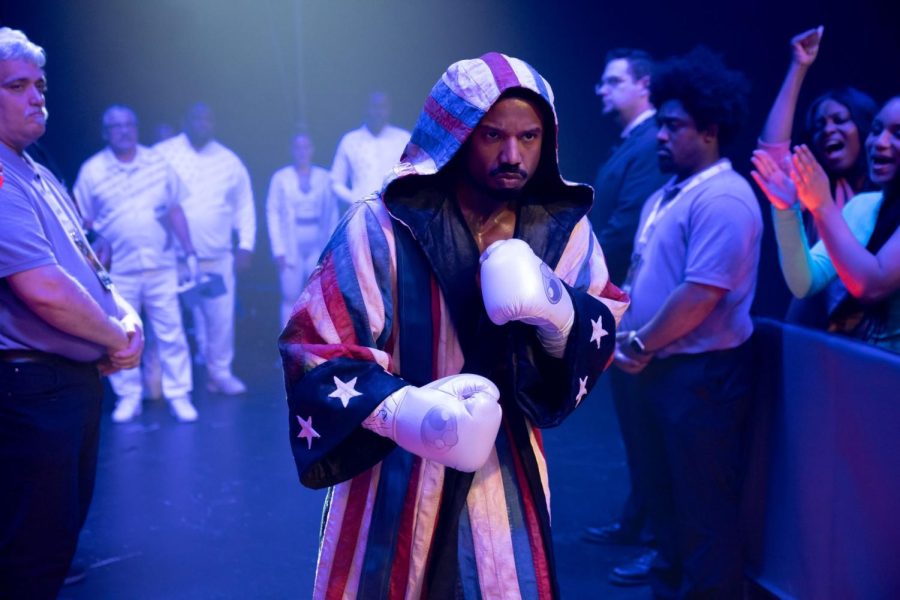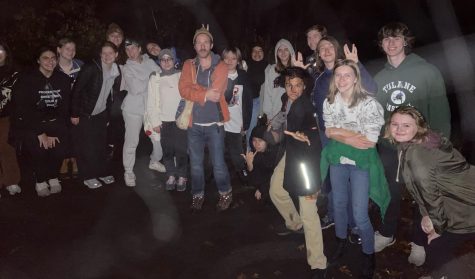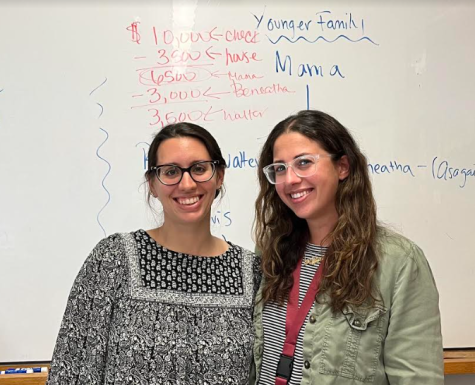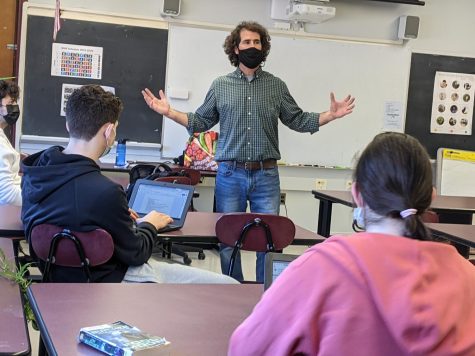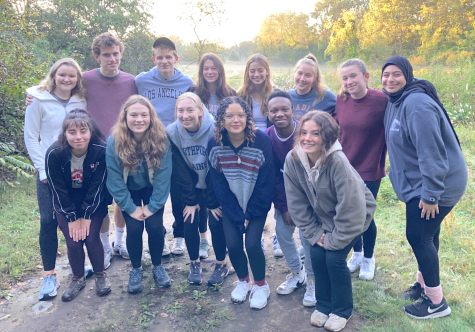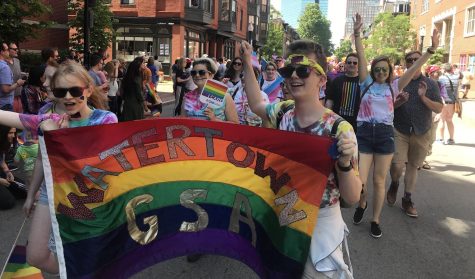At French Revolution trial, students put together their defenses (and costumes)
AP European History class at Watertown High examines key participants by cross-examining them
Participants in the annual French Revolution trial put differences aside to pose with Judge Mastro (front row, center) for a group picture in the Watertown High School lecture hall on Jan. 21, 2016.
February 4, 2016
Blood. Death. Glory. Betrayal. You may not be aware, but all of this was on the line just a few weeks ago at Watertown High. What I am, of course, alluding to is the French Revolution.
Yes that’s correct, You did not misread. The French Revolution.
A trial was held in the WHS lecture hall on Jan. 21, 2016. Famous names such as Marie Antoinette, Louis XVI, Maximilien Robespierre, Marat fought for their justified cause in the French Revolution. It was a bloody showdown with words used like knives and the cloud of competitive nature fogging each group’s vision to victory.
This may be surprising to you. I thought the same thing. Before entering AP Euro this year, I had no clue that this was an annual event!
Each year Mr. Mastro has his AP European History students receive a position in the French Revolution. Due to the reduced class size this year, there were five groups instead of seven. These included the Radicals, Girondists, Aristocracy, Monarchy, and Clergy. Each group studied its specific angle and goal for the revolution, while choosing its role for its section. Within each group was a lawyer (who would cross-examine witnesses and read the opening and closing statements), and various witnesses (who would be called up and questioned). The trial is always juried by the AP Euro class from the year before.
The trial began at around 8:15 a.m. The opening statements were read. The battle had begun.
After the first readings, the group’s lawyer would rise once again to cross-examine any witnesses that they felt could help their cause. Radicals such as Robespierre and the Monarchy members (Louis and Marie) were by far the most questioned.
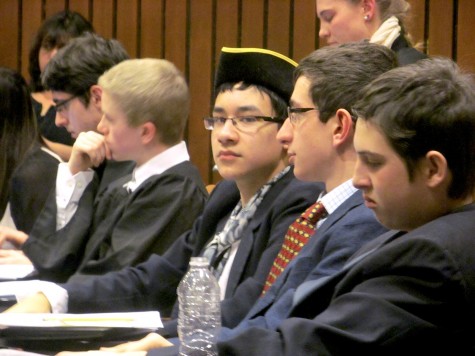
(For those who do not know, Robespierre had been an extremist during the French Revolution, believing that justice could only be achieved through excessive bloodshed.)
However, despite the amount of difficulty each group may have had in defending itself, it would need to work through it, making the best of its situation.
The closing statement would seal the deal for each group, leaving the jury with the final tastes of each group’s goals.
It was an … interesting trial to say the least. Tensions rose. Intensity heightened. Classmates took on classmates. It was a bloody showdown with words used like knives
There were key points in the trial. Some notable ones included when King Louis began going off on the Radicals, repeatedly labeling them “barbaric savages”. Another time, the Monarchy’s lawyer slipped up and wrongly quoted the Girondists, despite his strong argument otherwise. Within minutes he was objected to, and his point was shot down.
Even prior to the trial, certain groups had attempted to figure out others’ intentions, some even using deceit. Computer screens with game plans were hidden, each person was careful not to disclose any key information that would help others.
After the this bloody verbal battle, the judge ruled the Girondists in first place, the Monarchy in second, and the Radicals tied with the Aristocracy for third.
Chances are, you did not know this trial even existed. Next time January rolls around, check out the WHS lecture hall. Who knows? Maybe Marie Antoinette will be defending her life or Robespierre could be fuming about the justification of the guillotine. You could just see some history in the making!
–Feb. 4, 2016–
